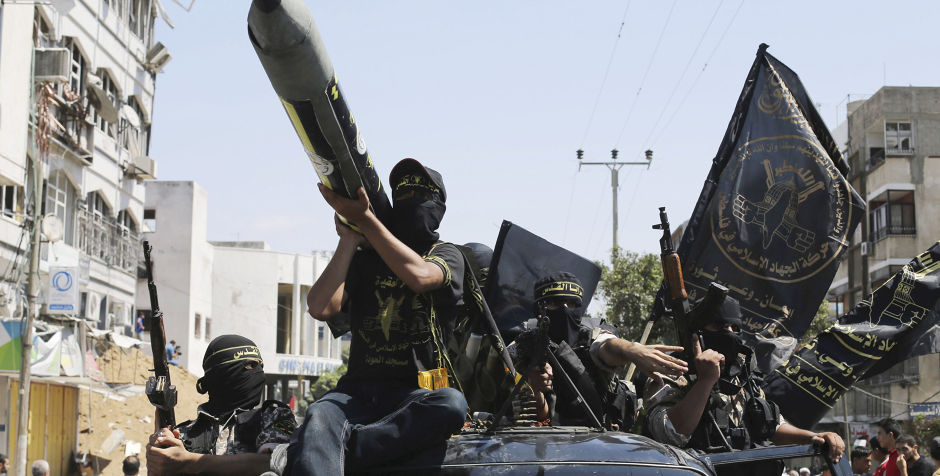Jihadists Psychologically Dominate the Battlefield
Everyone who’s spent five minutes in the Middle East knew — or should have known – this was going to happen:
The Obama administration’s Syria strategy suffered a major setback Sunday after fighters linked to al-Qaeda routed U.S.-backed rebels from their main northern strongholds, capturing significant quantities of weaponry, triggering widespread defections and ending hopes that Washington will readily find Syrian partners in its war against the Islamic State.
I won’t go through all the gory details (I’d urge you to read Ira Straus’s excellent NRO home-page piece), but Americans have to understand the utter futility of our quest for effective “moderate” proxies to fight jihad. We have spent billions of dollars, have trained young Syrians, Iraqis, and Afghans for countless hours, and have equipped them with weapons far superior to anything the jihadists posses, and still they melt away — running or switching sides at first contact with the enemy.
Why?
Because jihadists psychologically dominate the battlefield. Training and weapons are obviously key to success in combat, but training a soldier isn’t like training an accountant or IT professional — it’s about so much more than knowledge or tools. All of this should be elementary, but the increasing lack of combat experience in the highest echelons of our government suggests it’s not. At the most elementary level, a soldier has to find the moral courage to overcome primal fear. And when fighting jihadists, the Iraqi soldier or Syrian moderate faces a sudden, terrifying reality.
They are coming, and they will not stop.
That is the reality of fighting disciplined armies, but it is also the reality of fighting fanatics — of people who give the impression that they don’t care whether they live or die, that the normal rules of human preservation have been utterly discarded, and they exist only to kill or be killed. In the face of such ferocity, there is but one response:
We shall not be moved.
This is the response of the American fighting man, whether it’s the Marine at Guadalcanal confronting a midnight banzai charge, the outgunned sailors at Leyte Gulf facing down the barrels of the world’s most powerful battleships, or the soldiers and Marines in countless firefights from the Pusan Perimeter in Korea, to Khe Sanh in Vietnam, or in the nameless battles across Iraq and Afghanistan. But it is not the universal response of all fighting men, and even American troops have cracked under extreme duress in wars past. And jihadists often crack when facing Americans today.
Historically, the power of this “fighting spirit” (or élan as the French called it when they launched human wave attacks against German positions early in World War I) has been so clearly recognized that even otherwise sophisticated military minds have believed that spirit alone can overcome deficiencies in equipment, training, and tactics. It can, and it does — until “fighting spirit” collides with iron will and discipline on the other side. But when that iron will doesn’t exist, the spirit wins. The French were foolish to believe that the German soldier would melt in the face of French bravery. The jihadist knows the Iraqi soldier will flee.
The jihadist burns with conviction. The Iraqi soldier, by contrast, may hate and fear the jihadist, but with rare exceptions he does not carry the same level of conviction into the fight. Talk to virtually any American who’s spent significant time with Afghan and Iraqi forces. The words, “motivated,” “disciplined,” and “courageous” do not come easily — even if (as is sometimes the case) the Americans grow to like their Iraqi or Afghan allies.
It’s past time for our leaders to recognize our allies’ profound limitations. Unsupported by direct contact with Americans in the field, they serve mainly as cannon fodder — ready to throw down their (American-made) arms the moment the fight starts to drift out of their immediate control. Yes, the Kurds fight well, but the Kurds can’t and shouldn’t lead an offensive outside their traditional areas of control.
But for now — so long as the Obama administration is in charge — recent experience and historical military truths mean nothing, and our “allies” are functioning as little more than middlemen, holding our weapons until they’re turned over, slightly used, to their new jihadist masters.

